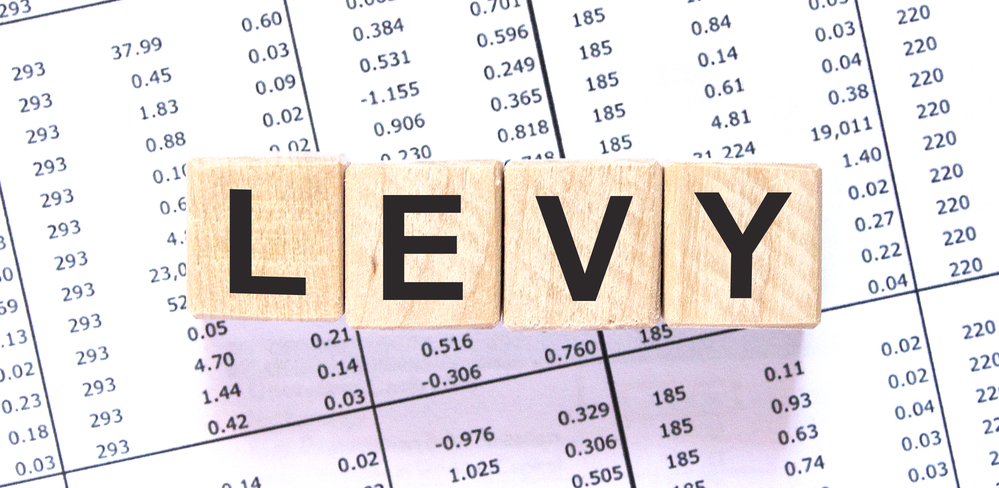What's the Difference between a Tax Lien and a Levy?
- Nov 29, 2022
 When you have unpaid tax debt, there are many actions that the IRS can take to collect on what you owe. These actions can range from small acts like keeping any future tax refunds you may be owed, to more severe actions like tax liens and tax levies. While people often use these terms interchangeably, tax liens and levies are actually two separate types of action that the IRS can take against you. Keep reading to learn how they are different, so you can better understand what it means if you find yourself facing a lien or levy.
When you have unpaid tax debt, there are many actions that the IRS can take to collect on what you owe. These actions can range from small acts like keeping any future tax refunds you may be owed, to more severe actions like tax liens and tax levies. While people often use these terms interchangeably, tax liens and levies are actually two separate types of action that the IRS can take against you. Keep reading to learn how they are different, so you can better understand what it means if you find yourself facing a lien or levy.
What Is a Tax Lien?
A tax lien allows the IRS to place a legal claim on your property in order to secure the payment of a tax debt. However, it does not mean that the IRS is going to immediately seize your property. A lien works similarly to loan collateral, which means the property with the lien has been marked as a form of protection for the amount you owe the IRS. A lien places the IRS’s claim above other lenders, and can make it difficult for you to qualify for any new loans (because, essentially, you don’t have that property to offer a collateral).
A tax lien can be placed on a variety of assets, including financial assets, personal property, and real estate. Once a lien is placed on your property, you’re legally prohibited from selling it.
What Is a Tax Levy?
A tax levy is an even more severe step than a tax lien. It allows the IRS to legally seize your property and liquidate it (if applicable) to pay off your tax debt. The process for a tax levy is similar to a seizure or garnishment of your wages. It can be filed against your retirement accounts, bank accounts, wages, subcontract pay, and accounts receivable for your business. They can even levy your business equipment, property, or vehicles.
This is the key difference between a lien and a levy. While a tax lien merely states the IRS’s legal claim to the property, positioning it as collateral for your debts, a levy is an active move to seize that property and use it to repay what you owe.
A Lien Usually Precedes a Levy
In almost every case, a tax lien will occur before the IRS places a levy on your property. In this way, a tax lien acts as a sort of warning to the delinquent taxpayer that they must repay their taxes, or more severe steps may be taken to seize the property. So, just because a tax lien is not an active attempt to take your property, that doesn’t mean it shouldn’t be taken seriously. If you still do not repay your tax debt, a levy will likely follow very shortly.
How Does a Tax Lien Affect You?
Though a tax lien may seem “mild” when compared with a tax levy, the consequences can still feel heavy when you’re facing one yourself. A tax lien can impact your assets, credit, business, and even your bankruptcy proceedings, should you try to file bankruptcy.
Though a tax lien doesn’t directly impact your credit, the notice of the lien makes it difficult to obtain additional credit going forward. For business owners, a tax lien gives the government a stake in your business property and accounts receivable. Having a lien attached to your assets (whether it be your property, the money in your bank accounts, your retirement benefits, or anything else) can feel incredibly restrictive and limit the choices you can make regarding your own finances.
How Does a Tax Levy Affect You?
The effects of a tax levy can be felt much more quickly and much more severely in most cases. The exact impact will vary depending on the size of your debt and the property that’s been levied. A levy on your bank account can allow the IRS to freeze your bank account for 21 days and drain the owed funds directly from your bank. A levy on property (including business equipment, real estate, or vehicles) can cause that property to be seized by the government. A 1099 levy allows the IRS to collect on receivables you’re currently owed for your business.
How Can You Stop Levies and Liens?
The best way to stop a tax levy or lien on any of your assets is to settle your tax debt with the IRS. Naturally, most people don’t have the funds to immediately discharge a tax debt. (If you did, you likely wouldn’t be in this situation.) However, entering into a settlement agreement or payment plan with the IRS is often sufficient for the government to lift the levy or lien. Contact the IRS Advocates today to start working on settling your tax debt and stopping tax levies and liens against your assets.
STOP THE IRS!
Settle for less & Protect your assets
Never Call the IRS without Speaking with our Pros First!